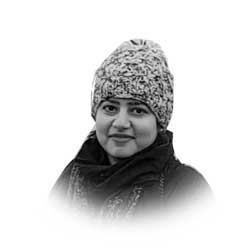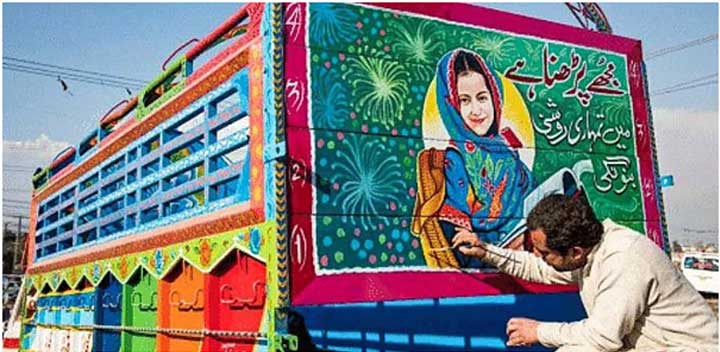Swabi, 25th January, 2020: Pakistan Poverty Alleviation Fund launched a project on “Enhancing Food Security through Strategic Interventions in Agriculture” in 12 union councils of districts Swabi and Torghar of Khyber PakhtunkhwaThe project aims to develop skills and knowledge of farmers on modern agricultural crop practices and facilitate setting up of agriculture value chains for improving livelihoods of small farmers. A ceremony was held in Swabi in this regard which was presided by Speaker National Assembly, Asad Qaiser, also present were representatives from government line departments, MNAs, MPAs and officials from PPAF.On this occasion cheques were also distributed among borrowers of the interest free loan component of the Government of Pakistan’s flagship Ehsaas Program for poverty alleviation.
Lauding the efforts of PPAF and its partner organizations for starting a unique initiative targeting the farmer community, Speaker National Assembly said, “Farmers are the backbone of this country. During my tenure as Speaker KPK assembly, I was closely involved in the agricultural sector. We introduced many projects for smart irrigation system and in future we hope to continue with the same zeal. Innovation in agriculture sector is a crucial and projects such as these will not only provide profitable alternative farming options to local communities but will also enhance their capacities.”
CEO Pakistan Poverty Alleviation Fund, Qazi Azmat Isa was also present at the launch ceremony. Speaking on this occasion, he said, “Pakistan Poverty Alleviation Fund has always been at the forefront of empowering people from the underprivileged communities. We are committed to achieving the sustainable development goals on poverty eradication by introducing innovative practices which could benefit people belonging to different sectors.”
Head of Programs, PPAF, Ms Simi Kamal highlighted the need for adoption of modern techniques in the agricultural sector in order to boost economic growth. “Pakistan’s GDP heavily relies on the agricultural sector and small farmers are one of the biggest assets of the country. It is pivotal for us to equip farmers about sustainable practices such as effective water utilization so they can maximize output and use resources wisely. This project shall lay a solid foundation for all of us”
The project which is being implemented by PPAF partner organizations namely CERD and IDEA has been designed to address the critical issue of poor crop productivity and low economic return. As part of the project, activities are planned to ensure efficient water input and improved agricultural value chains. Community institutions will be formed along with establishment of field schools for farmers where they can be educated on sustainable practices. Additionally, modern agricultural enterprises will also be formulated for community institutions.
PPAF is also implementing the interest free loan component of the Ehsaas program through its partner organizations. Loans worth Rs. 16.65 billion have been disbursed so far to 490,122 borrowers. 45% of the borrowers being women. In Khyber Pakhtunkhwa alone, interest free loans of around Rs. 1,249.98 million have been rolled out to more than 39,956 borrowers. The initiative draws funds from the Government of Pakistan, International Fund for Agricultural Development (IFAD) and the Asian Development Bank (ADB).
In total Rs 42.65 billion have been set aside for 110 districts across the country under the Ehsaas Program. The amount will impact 16.28 million people with 50% women including youth, persons with disabilities, transgender, minorities and marginalized communities. During the next 4 years, as many as 3.8 million interest free loans will be provided to 2.28 million households. In total, 14.7 million people will benefit from this component. The program is being executed through Pakistan Poverty Alleviation Fund (PPAF) and Akhuwat.
As one of the largest sources of pro-poor spending in the country, the Pakistan Poverty Alleviation Fund is the lead agency for poverty reduction in Pakistan. It embodies the spirit of public-private partnership to address the multi-dimensional issues of poverty with a view to achieving social and economic change. PPAF outreach extends throughout Pakistan as it has partnered with 130 organizations working in over 100,000 villages/settlements with more than 133,000 community organizations and 440,000 credit/common interest groups at the grassroots level in 137 districts.








